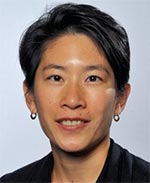Date
Cost
Free and open to the public
Location
CREOL, Room 103
Description
Metal nanostructures concentrate optical fields into highly confined, nanoscale volumes that can be exploited in a wide range of applications. However, metal nanoparticles exhibit broad localized surface plasmon resonances that increase in width as the particle size increases. One way to narrow these broad responses is to organize the nanoparticles into arrays with spacings on the order of hundreds of nanometers. This talk will describe new ways to design arrays of strongly coupled nanoparticles that can exhibit extraordinary properties including programmable and reconfigurable modes and real-time plasmon nanoscale lasing. First, we will describe a new type of nanocavity based on arrays of metal nanoparticles that support lattice plasmon modes that can be amplified and that can result in room-temperature lasing with directional beam emission. Second, we will describe a new way to achieve ultra-narrow resonances via superlattice plasmons, collective excitations that are supported by hierarchical nanoparticle arrays. Finally, we will discuss how ultra-narrow resonances can be achieved and manipulated in emerging plasmon materials.
Biography
Teri W. Odom is Charles E. and Emma H. Morrison Professor of Chemistry, Professor of Materials Science and Engineering, and Associate Director of the International Institute of Nanotechnology (IIN) at Northwestern University. She is an expert in designing structured nanoscale materials that exhibit extraordinary size and shape-dependent optical properties. Odom has pioneered a suite of multi-scale nanofabrication tools that has resulted in flat optics that can manipulate light at the nanoscale and beat the diffraction limit, plasmon-based nanoscale lasers that exhibit tunable color, and hierarchical substrates that show controlled wetting and super-hydrophobicity. She has also invented a class of biological nanoconstructs that are facilitating unique insight into nanoparticle-cell interactions and that show superior imaging and therapeutic properties because of their gold nanostar shape.
Odom has received numerous honors and awards, including being named a Fellow of the American Chemical Society (ACS); a Materials Research Society (MRS) Fellow; Fellow of the Royal Society of Chemistry; the Carol Tyler Award from the International Precious Metals Institute; a Blavatnik Young Scientist Finalist; a Radcliffe Institute for Advanced Study Fellowship at Harvard University; the ACS Akron Section Award; an NIH Director's Pioneer Award from the National Institutes of Health; the MRS Outstanding Young Investigator Award; the National Fresenius Award from Phi Lambda Upsilon and the ACS; the Rohm and Haas New Faculty Award; an Alfred P. Sloan Research Fellowship; a DuPont Young Investigator Grant; a National Science Foundation CAREER Award; the ExxonMobil Solid State Chemistry Faculty Fellowship; and a David and Lucile Packard Fellowship in Science and Engineering. Odom was the founding Chair of the Noble Metal Nanoparticles Gordon Research Conference, whose inaugural meeting was in 2010. In addition, Odom was an Associate Editor for RSC’s flagship journal Chemical Science (2009-2013) and is on the Editorial Advisory Boards of ACS Nano, Chemical Physics Letters, Materials Horizons, Annual Reviews of Physical Chemistry, and Nano Letters. She serves as founding Executive Editor of the journal ACS Photonics (2013 - ).
Presenter

Teri W. Odom, Ph.D.
Department of Chemistry
Department of Materials Science and Engineering
International Institute of Nanotechnology (IIN)
Northwestern University
More information
Light refreshments will be served
Contact
Debashis Chanda NanoScience Technology Center Debashis.Chanda@ucf.edu